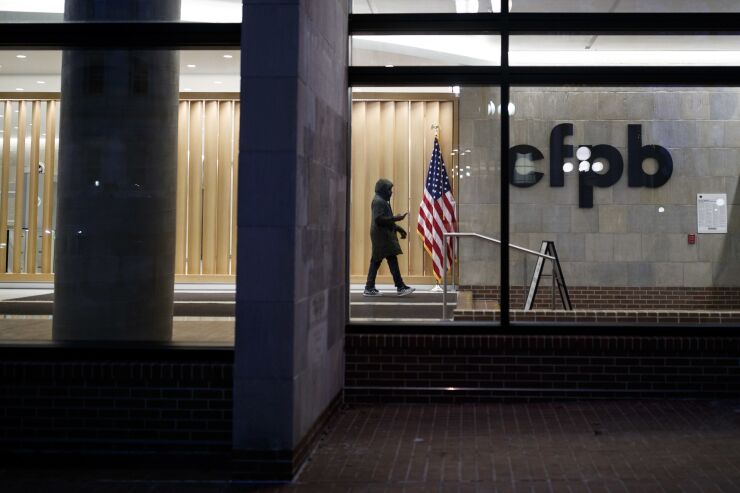Under rules that allow for inflation adjustments, credit card companies are expected to raise the cost of late fees, despite recent efforts by the Consumer Financial Protection Bureau to crack down on the charges.
Of the 20 largest card issuers, 18 of them charge late fees at or near the maximum level allowed by the Credit Card Accountability Responsibility and Disclosure Act of 2009, known as the Card Act, according to a CFPB report released Tuesday.
“Many credit card issuers have made late fee penalties a core part of their profit model,” CFPB Director Rohit Chopra said in a press release. “Given their current practices, we expect that credit card issuers will hike fees, based on inflation, as limits continue to rise.”

The
The Card Act created a range of protections for cardholders, including requiring that penalties be “reasonable and proportional.” Still, card issuers are allowed to set fees at a particular level, subject to an annual inflation adjustment.
The CFPB report faults credit card issuers for relying on revenue from late fees that are disproportionately paid by economically vulnerable consumers. Cardholders with subprime credit scores are far more likely to incur repeat late fees than those with higher credit scores, the report found.
“Credit card late fees disproportionately burden consumers in low-income and majority-Black neighborhoods,” the CFPB said, noting that late fees “continue to negatively affect millions of families.”
The CFPB report looks at late fees paid by subprime borrowers and those who live in low-income areas. Subprime borrowers paid $138 in late fees a year, on average, even though they are more likely to carry smaller balances, the report found.
Cardholders in low-income neighborhoods paid nearly $10 more in late fees for each credit card they held compared with their counterparts in areas that have higher rates of economic mobility.
In 2020, credit card companies collected $12 billion in late fees, a 16% drop from 2018, according to the CFPB report.
Most smaller banks and credit unions charge a maximum late fee of $25 or less, but almost all of the largest credit card issuers charge $30 for the first late payment and $41 for a subsequent late payment within six billing cycles, the CFPB said.
The bureau expects many major card issuers to raise fees further as a result of higher inflation. In February, the Bureau of Labor Statistics said that the consumer price index had risen by 7.9% over the previous 12 months.
The CFPB so far has received more than 25,000 comments on a request for information about what it characterizes as exploitative junk fees. The bureau extended the deadline for public comment through April 11.





